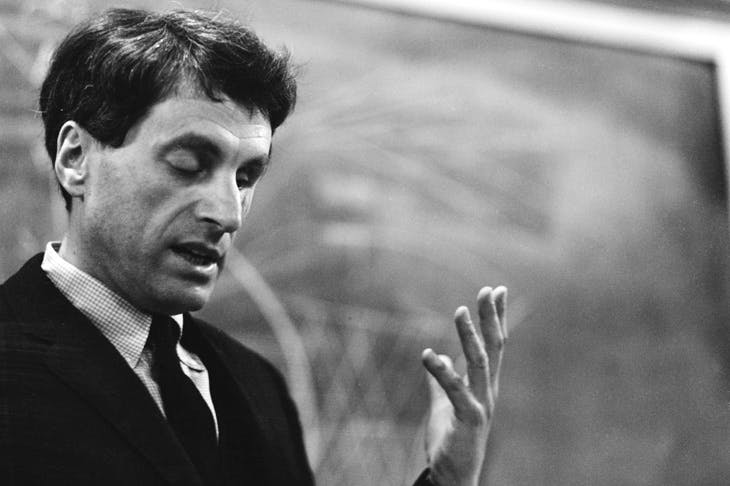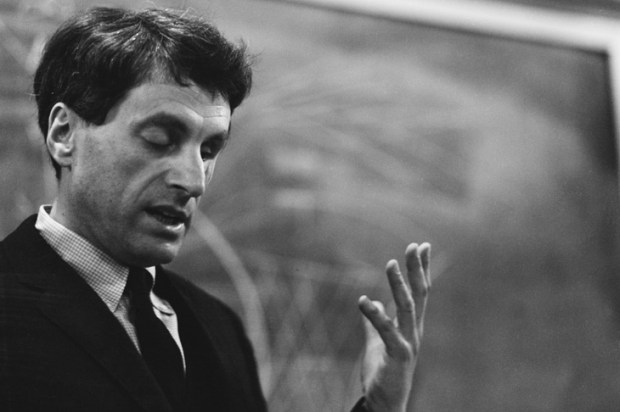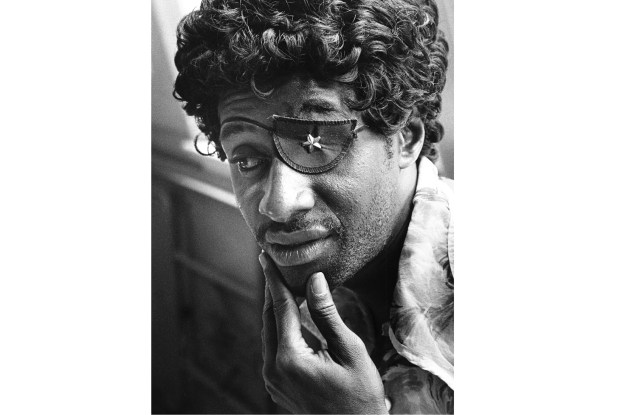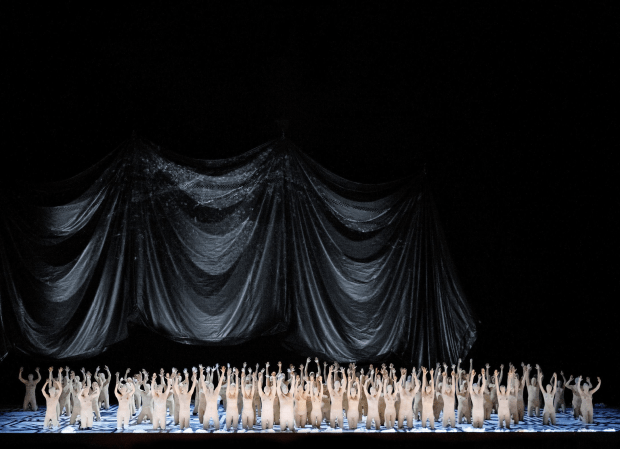Nothing pleased Iannis Xenakis more than a great big rattling storm. The sound of a thunderclap would have him running out of his home half naked to join the elements. If he was at sea, he’d sniff out any lightning and sail his yacht directly at it. The Greek composer was what we might call a hard bastard — a musical Ray Mears. As part of the Greek resistance during the war — battling first the Nazis then the British — Xenakis lost an eye to shrapnel. His compositions betray the same traits: those of the adrenalin junkie, the adventurer, the kamikaze.
What would happen if I composed a piece solely made up of the swooping sounds we call glissandi, he asks in Mikka ‘S’ (1976). Apart from make the audience seasick? The result is a dizzying study in zero gravity — an attempt to recreate one of those hairy voyages in the Med perhaps. In ST/4-1, 080262 (1956–62) he fed the only computer in France (at the offices of IBM) with pages of code which spat out a ballistic string quartet.
Xenakis (1922–2001) suffered for this computer work. His compositions were tagged ‘mathematical’. But this was maths in the service of something quite unmathematical: the conjuring up of some of the most visceral music ever written. Stochastics, as this music came to be known, was the attempt to recreate accurately the violent randomness of natural phenomena — of hailstones hitting a roof, for example. To properly mimic nature’s fractal volatilities you had to do something quite unnatural.
The Wigmore Hall were offering up a ‘Xenakis Day’ last Saturday, which consisted of 11 shortish chamber works (mainly for strings, one for piano quintet) spread over two concerts given by the American JACK Quartet. Stingy? Not a bit of it.
That such a hardcore modernist would turn so often to the strings — the romantic enemy — for his creations seems odd. Until you hear what he makes them do. He turns them into rocks. The start of the solo cello piece Kottos (1977) sounded like someone was dragging a slab of granite into the hall. By the end stone had become dust. This was not music but chemistry: solids becoming liquids, liquids becoming gases, condensation, evaporation, sublimation.
Xenakis’s feet rarely touch the ground (of this planet anyway). But in the amazing Tetras (1983) I heard the fragment of a boogie woogie buried in its middle. Elsewhere there are hints of a kind of sci-folk. Tetras, I should say, has some of the battiest sounds in the whole quartet repertoire. The musicians became not just squeaky gates, but kazoos, sirens, factory machinery. The ventriloquism was so outer-body it elicited astonished laughter from the audience.
When he’s not melting sound or boiling it or pinging it off the walls, there is an austere, flinty side to Xenakis that can feel like he’s trolling us. Even here, though, there was beauty. For this, thank the JACK Quartet. Honouring every shift in texture with care, clarity and chutzpah, they delivered such a good case for Xenakis I began to think he might be the greatest postwar composer — or at least the most vivid.
The next night saw the latest instalment of Igor Levit’s Beethoven sonata cycle. Levit’s look is unsettling, like a villainous city slicker. And he plays with his face so close to the keyboard I thought he might be eating the keys. In fact it was his hands that were gobbling up the notes in the opening Sonata in G, Op. 31 No. 1, pushing the line forward, forward, endlessly, perilously, forward.
If the critics are to be believed, he is the ‘most fascinating pianist around’. Hmm. Rhetorically he can be brilliant, taking on both the tomfoolery of these middle-period sonatas and the grander romantic gestures with the confidence of an A-grade charmer. But his real interest is in the extremes. Whenever he reached down into the depths, a smile would creep over his face.
Did we mind the fluffs? Someone did: there was a booer. They didn’t bother me except when they began to bother Levit, such as in the Pastoral sonata, where an inadvertent elongation knocked him off course for the rest of the piece. More unforgivable was his interpretation of the Moonlight. Anyone who makes you think this piece isn’t all it’s cracked up to be is doing something very wrong.
In the Sonata in E-flat, Op. 27 No. 1 magic was fleeting, but the end of the first movement was lovely — and might have been even lovelier had Levit not looked so smug about how good it sounded. The best bit was the slow movement of Op. 31 No. 1, a cheeky send-up of Italian opera. Levit’s great at singing and smiling. In the sonata’s mad finale we were back in Xenakis territory, the coda’s staccatos shooting out across the hall. Actually I’d like to see Levit play Xenakis. They should go storm-chasing together one day.
Got something to add? Join the discussion and comment below.
Get 10 issues for just $10
Subscribe to The Spectator Australia today for the next 10 magazine issues, plus full online access, for just $10.















Comments
Don't miss out
Join the conversation with other Spectator Australia readers. Subscribe to leave a comment.
SUBSCRIBEAlready a subscriber? Log in